Indigenous Governance Database
Presentations
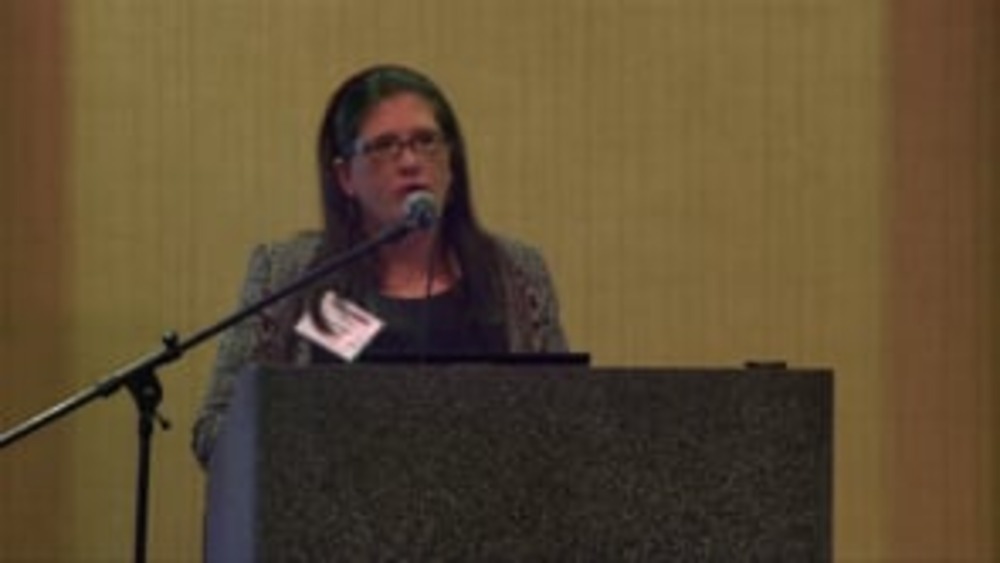
Sarah Deer: The Muscogee (Creek) Nation's Approach to Citizenship
Sarah Deer (Muscogee), Co-Director of the Indian Law Program at the William Mitchell College of Law, provides a brief overview of the Muscogee (Creek) Nation's unique approach to defining its citizenship criteria, which essentially creates two classes of citizens: those who run for elected office,…
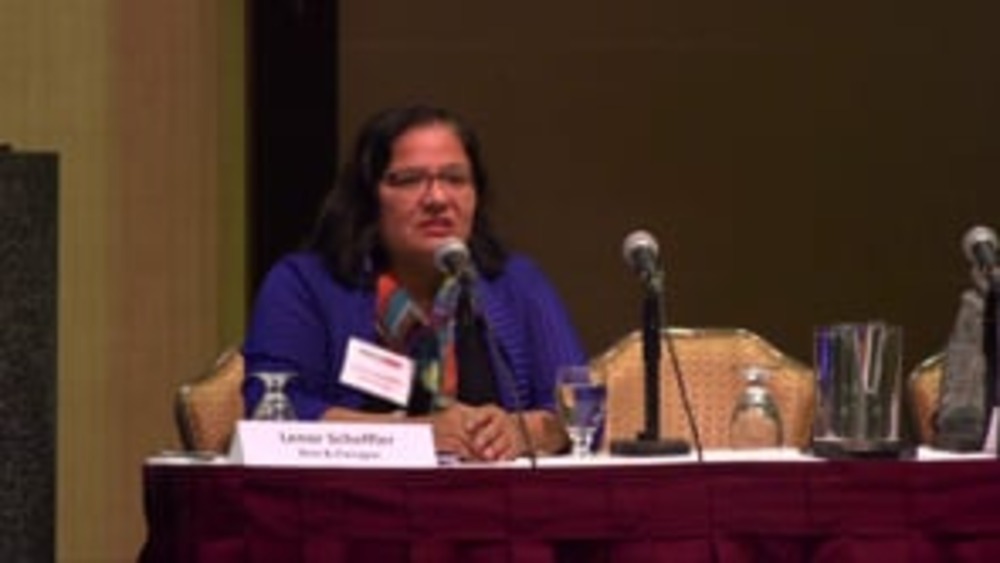
Lenor Scheffler: The Lower Sioux Indian Community's Approach to Citizenship
Lawyer Lenor Scheffler (Lower Sioux Indian Community) provides an overview of the Lower Sioux Indian Community's approach to defining citizenship, which is predicated on residency within the Lower Sioux reservation's boundaries. She also discusses how eligibility for tribal social services is tied…
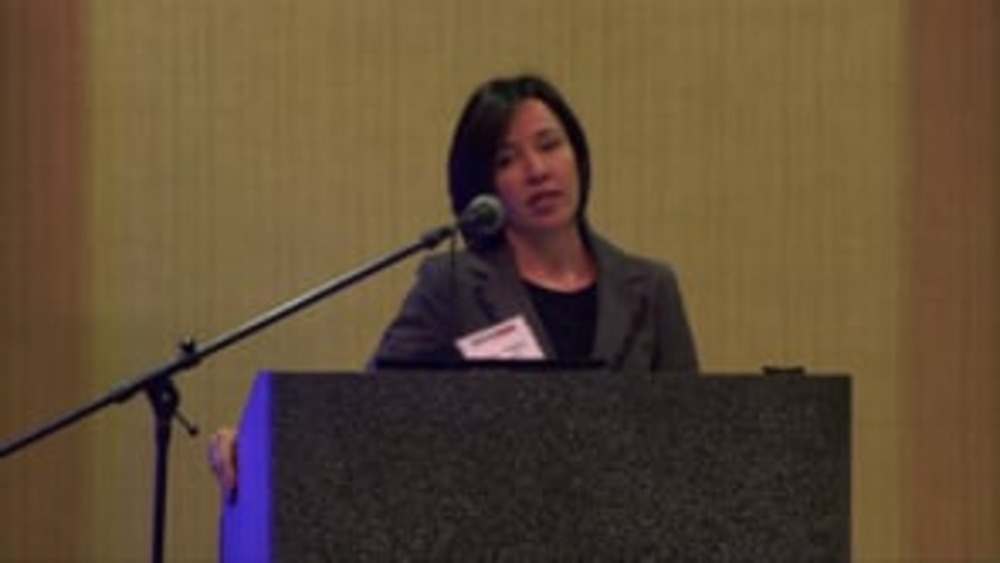
Vanya Hogen: Redefining Citizenship Criteria Through Constitutional Reform and Other Means
Lawyer and tribal judge Vanya Hogen (Oglala Sioux) discusses the difficulties inherent in amending Indian Reorganization Act (IRA) constitutions to redefine tribal citizenship criteria, and shares the story of the Shakopee Mdewakanton Sioux Community as an example of one Native nation with an IRA…
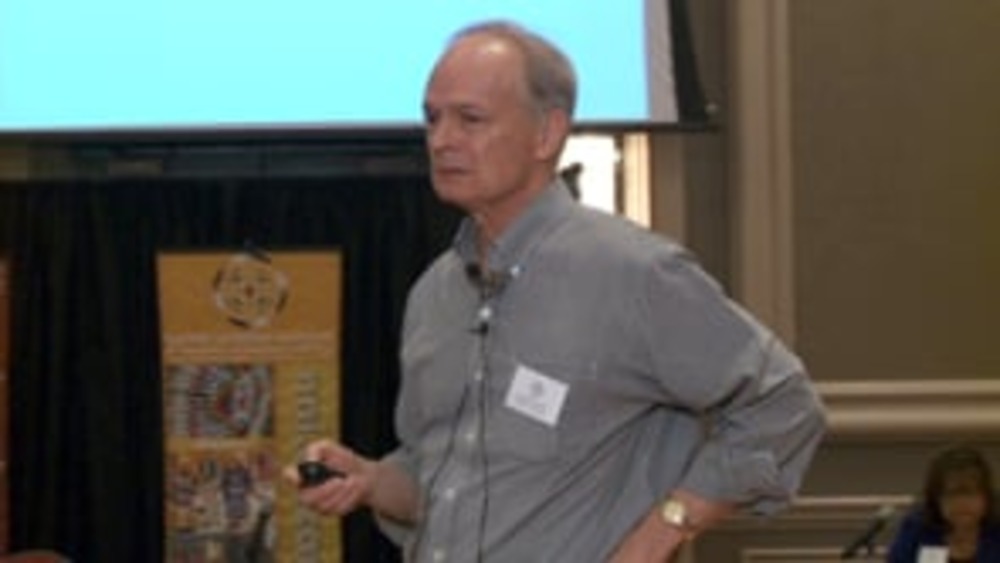
Stephen Cornell: Defining Constitutions (Presentation Highlight)
In this highlight from the presentation "Defining Constitutions and the Movement to Remake Them," Stephen Cornell provides some basic definitions of what a constitution is and the role it fundamentally plays -- or should play in the life of Native nations.
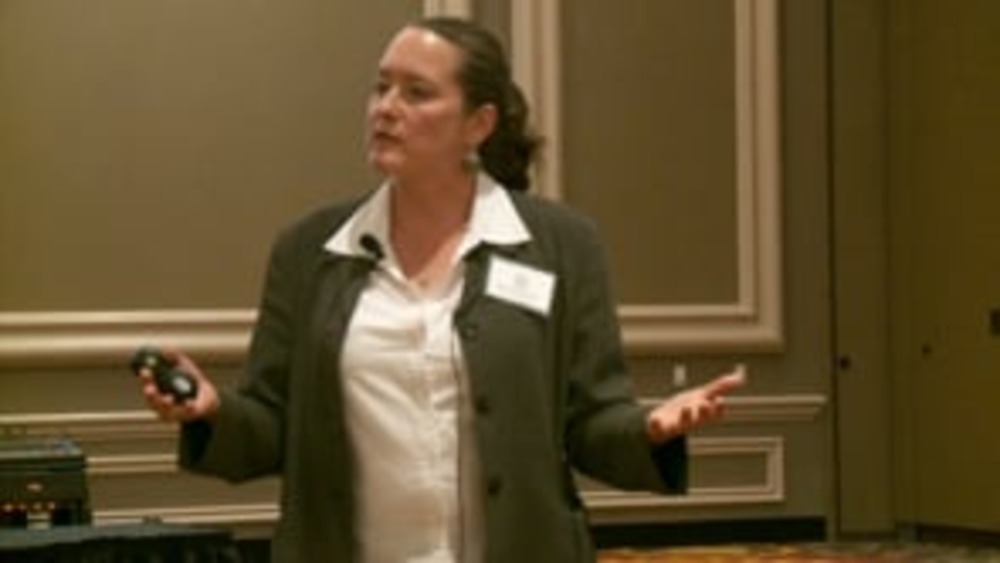
Miriam Jorgensen: Considering People-Made Law in Your Constitution (Presentation Highlight)
In this highlight from the presentation "Key Things a Constitution Should Address: 'How Do We Make Law?'," Miriam Jorgensen lays out some of the different ways that Native nations can provide mechanisms for citizens of those nations to make laws or change laws governing those nations.
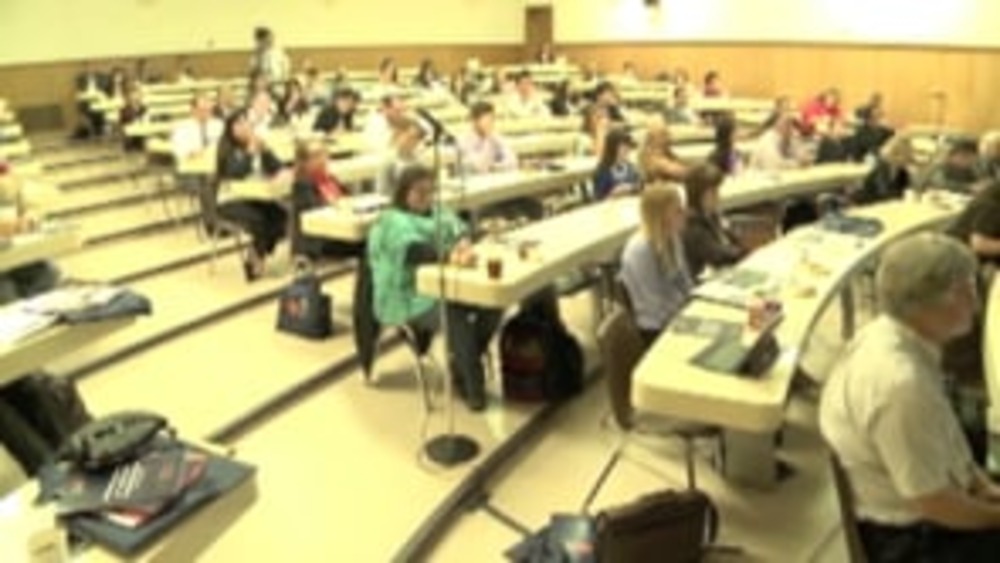
Good Native Governance Plenary 1: Innovations in Law
UCLA School of Law "Good Native Governance" conference presenters, panelists and participants Carole E. Goldberg, Matthew L.M. Fletcher, and Kristen A. Carpenter discuss law and the issues that Native nations deal with. Goldberg explains the recommendations of the Indian Law and Order Commission…
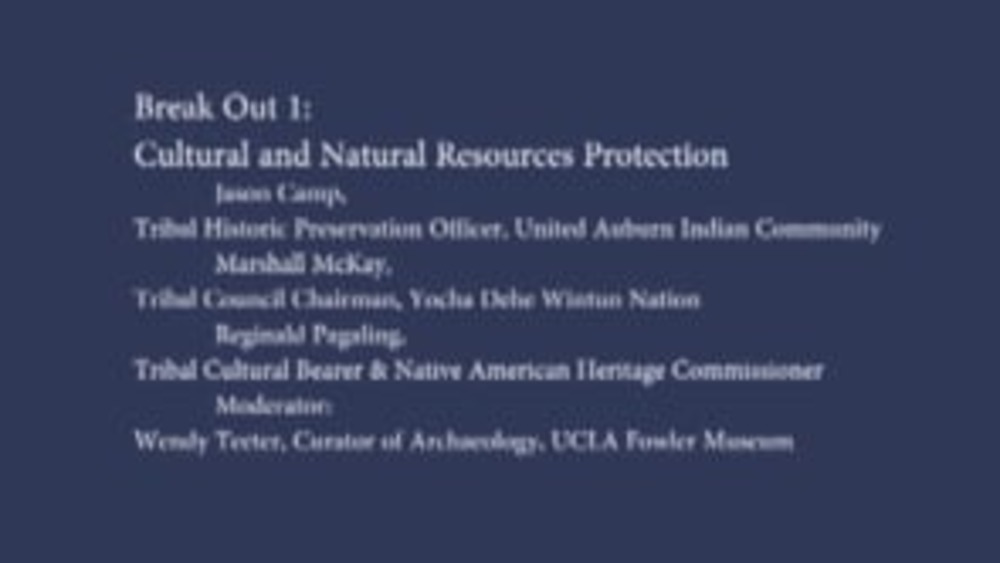
Good Native Governance Breakout 1: Cultural and Natural Resources Protection
UCLA School of Law "Good Native Governance" conference presenters, panelists and participants Reginald Pagaling, Marcos Guerrero, and Marshall McKay discuss their experience with cultural preservation and cooperation with the local and state governements. Reginald addresses the areas of concerns…
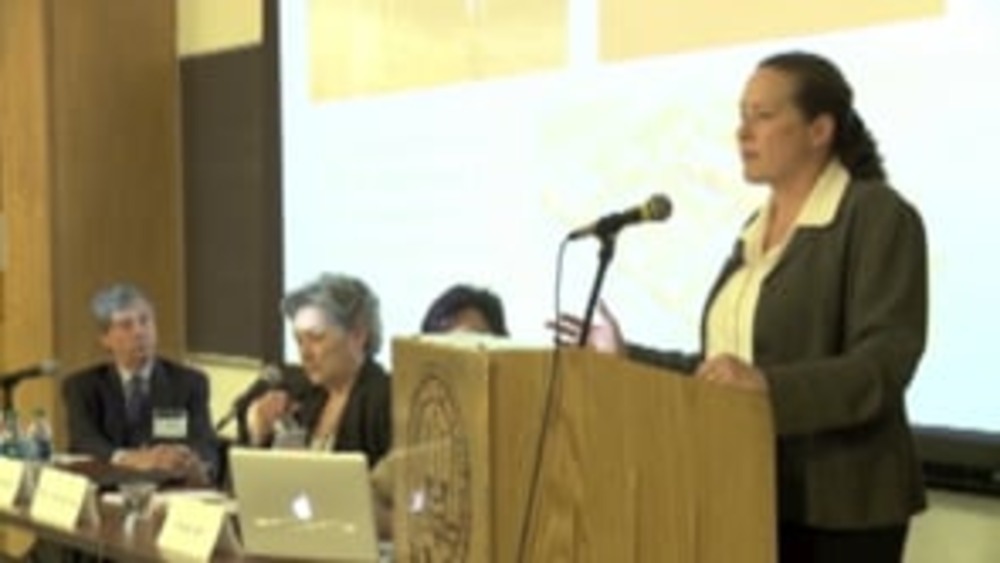
Good Native Governance Plenary 2: The Cutting Edge of Economic Development in Indian Country
UCLA School of Law "Good Native Governance" conference presenters, panelists and participants Miriam Jorgensen, Robert Miller, and Sherry Salway Black discuss economic research in Indian Country. This video resource is featured on the Indigenous Governance Database with the permission of the …
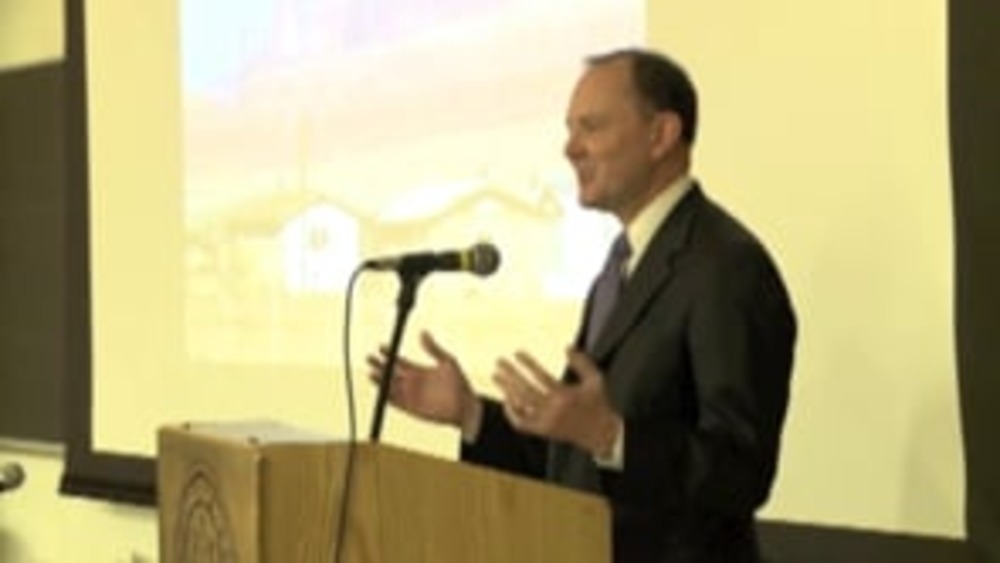
From the Good Native Governance: Innovative Research in Law, Education, and Economic Development Conference
Assistant Secretary Kevin Washburn provided a snapshot of Native nations engaging in self-governance reinforcing the notion that "almost anything the federal government can do, tribes can do better" through good governance.
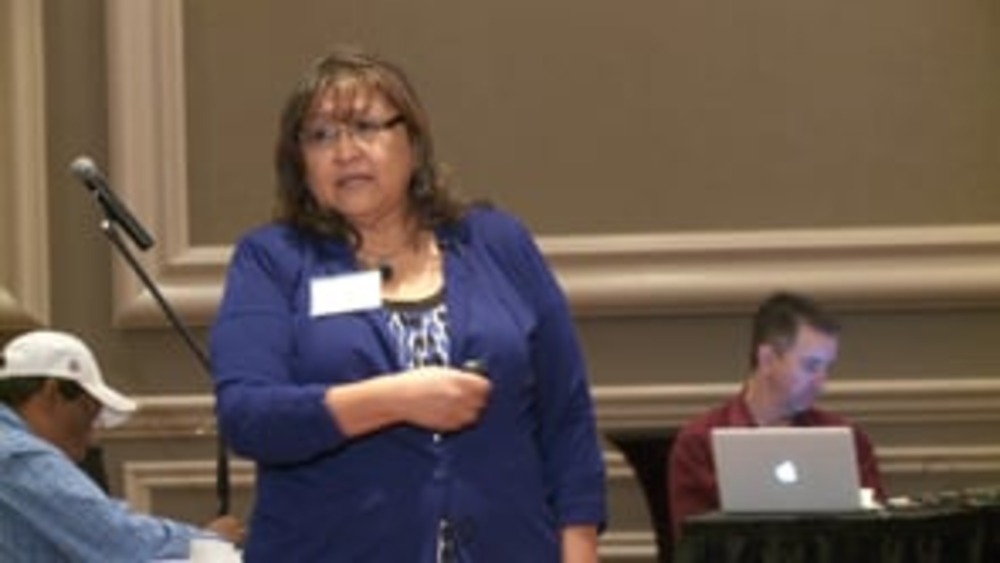
Joan Timeche: The Hopi Tribe: Wrestling with the IRA System of Governance (Presentation Highlight)
In this highlight from the presentation "Defining Constitutions and the Movement to Remake Them," Joan Timeche (Hopi) discusses how the Hopi Tribe continues to wrestle with an Indian Reorganization Act constitution and system of governance that runs counter to its traditional, village-based system…
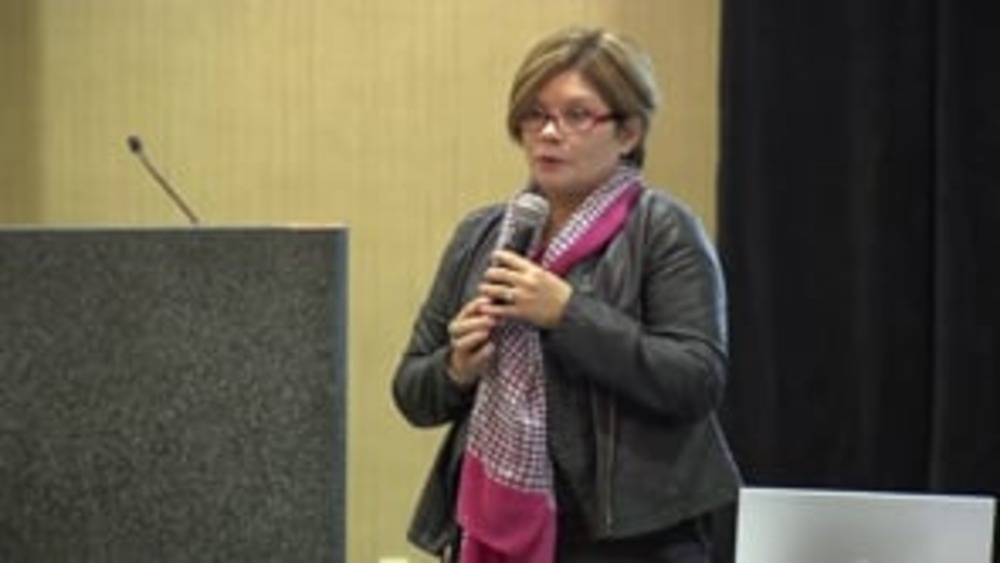
Patricia Riggs: Making Change Happen at Ysleta del Sur Pueblo
Patricia Riggs, Director of Economic Development at Ysleta del Sur Pueblo (YDSP), discusses how YDSP has developed and honed a comprehensive, multi-faceted approach to ciutizen engagement over the past decade in order to ensure that the decisions the YDSP government make reflect and enact the will…
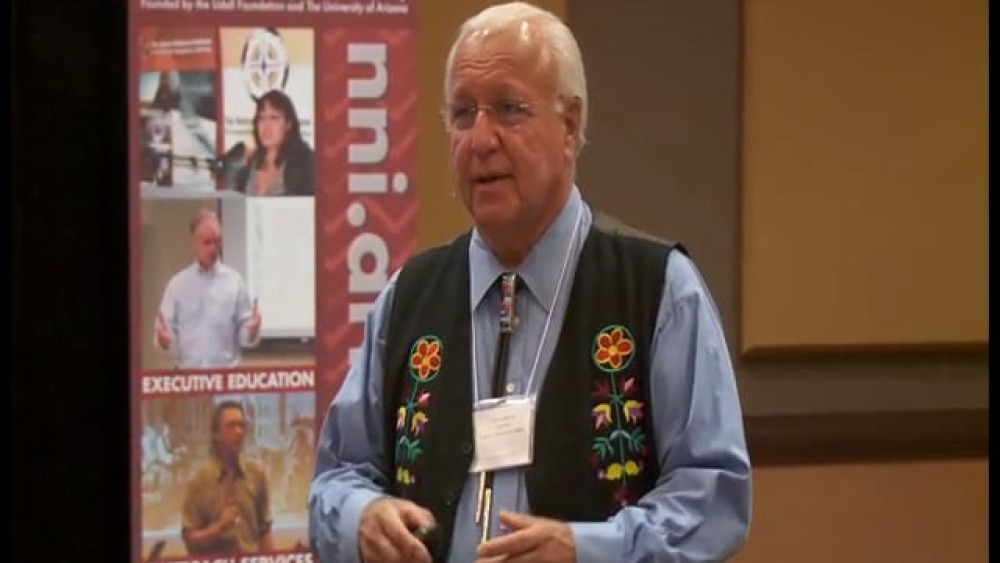
John "Rocky" Barrett: The Origins of Blood Quantum Among the Citizen Potawatomi
In this excerpt from his presentation at NNI's "Emerging leaders" seminar in 2012, Citizen Potawatomi Nation Chairman John "Rocky" Barrett provides an overview of how the U.S. government -- specifically the Bureau of Indian Affairs -- imposed blood quantum on the Citizen Potawatomi people, and how…
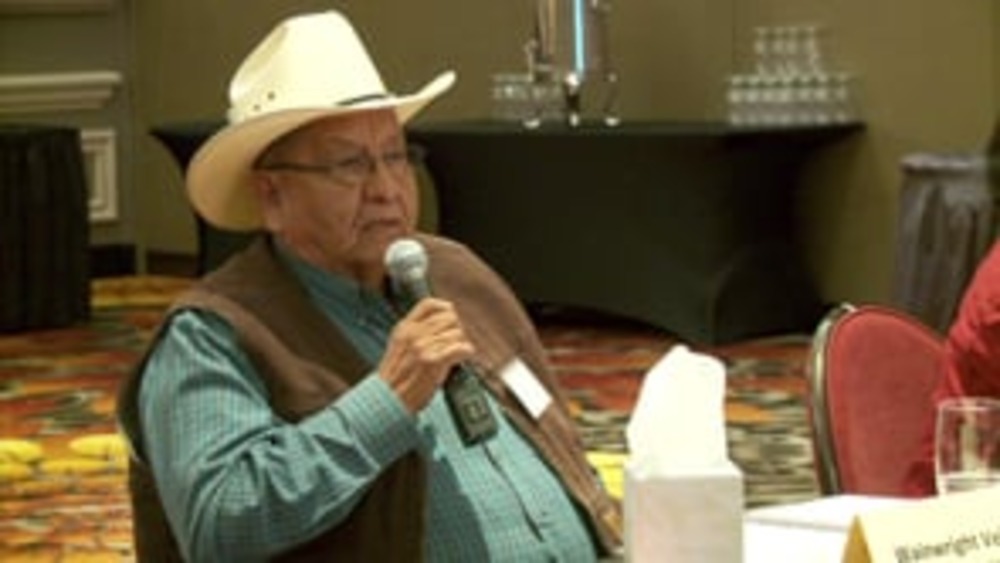
Robert Hershey and Andrew Martinez: The Legal Process of Constitutional Reform (Q&A)
Robert Hershey and Andrew Martinez engage participants in a lively discussion about the intricacies of secretarial elections and whether and how Native nations with Indian Reorganization Act constitutions should remove the Secretary of Interior approval clause from those governing documents.
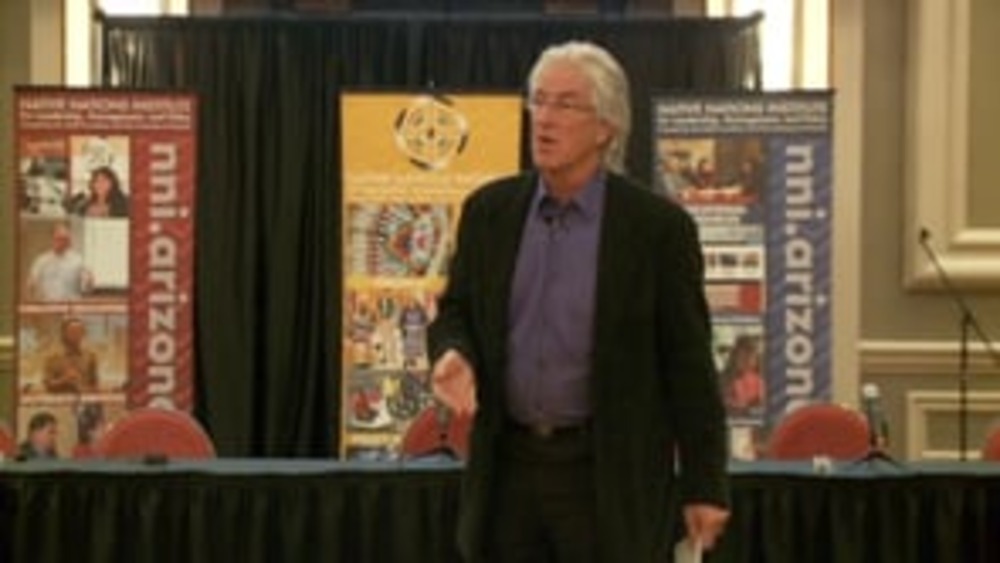
Robert Hershey: Dispelling Stereotypes about the Federal Government's Role in Native Nation Constitutional Reform
Robert Hershey, Professor of Law and American Indian Studies at The University of Arizona, dispels some longstanding stereotypes about what the federal government can and will do should a Native nation decide to amend its constitution to remove the Secretary of Interior approval clause or else make…
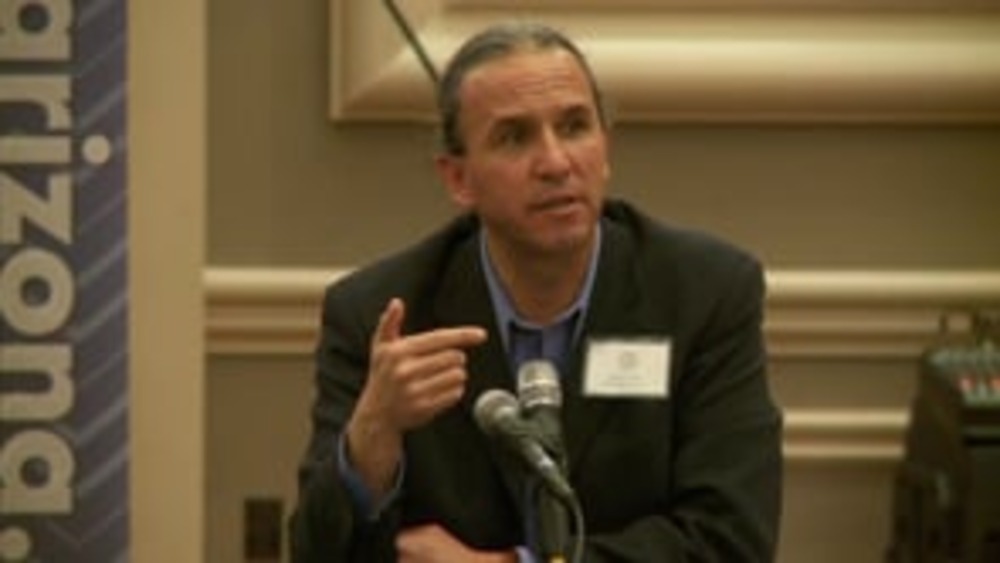
Terry Janis: Citizen Engagement and Constitutional Change at the White Earth Nation (Q&A)
Terry Janis, former Project Manager for the White Earth Constitution Reform Project, fields questions from the audience about his specific role in White Earth's constitutional reform process. He stresses the need for those engaging in constitutional reform to be cognizant of the fact that a process…
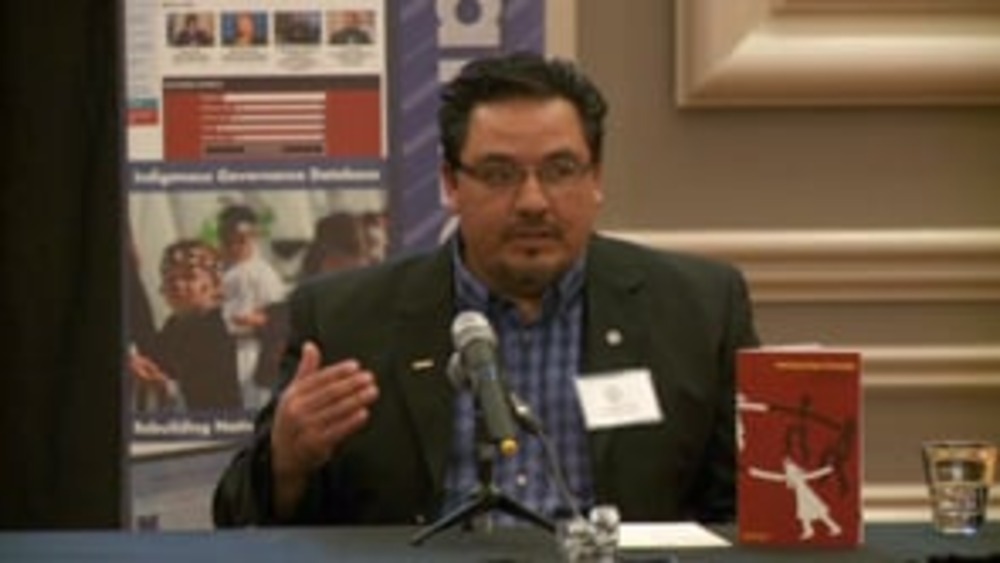
Carlos Hisa and Esequiel (Zeke) Garcia: Ysleta del Sur Pueblo: Redefining Citizenship (Q&A)
Carlos Hisa and Zeke Garcia from Ysleta del Sur Pueblo (YDSP) field questions about YDSP's current community-based effort to redefine its criteria for citizenship, and they provide additional detail about the great lengths to which YDSP has gone in order to document the origins and history of their…
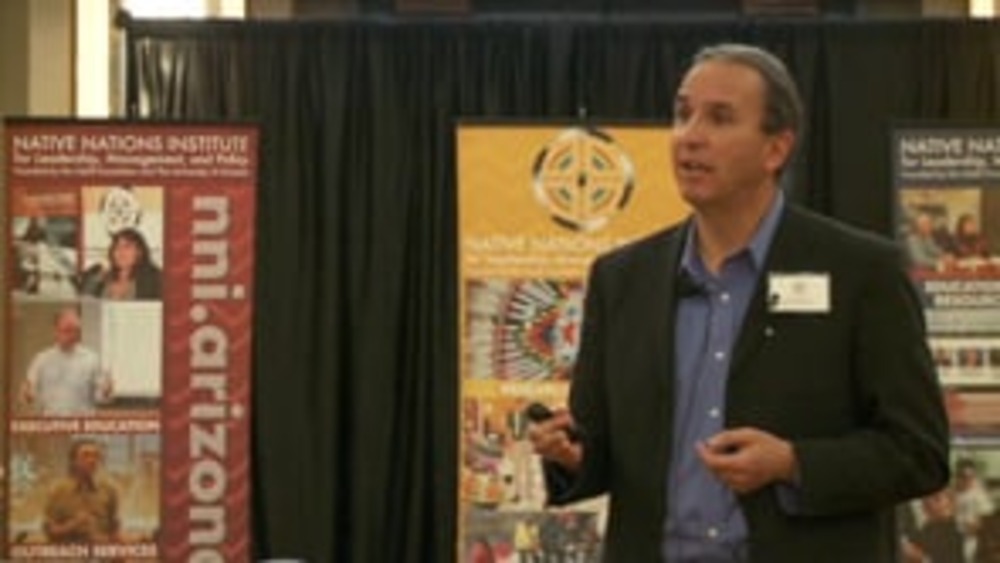
Terry Janis: Citizen Engagement and Constitutional Change at the White Earth Nation
Terry Janis (Oglala Lakota), former Project Manager of the White Earth Nation Constitution Reform Project, provides participants with a detailed overview of the multi-faceted approach to citizen engagement that the White Earth Nation followed as it worked to educate the White Earth people about the…
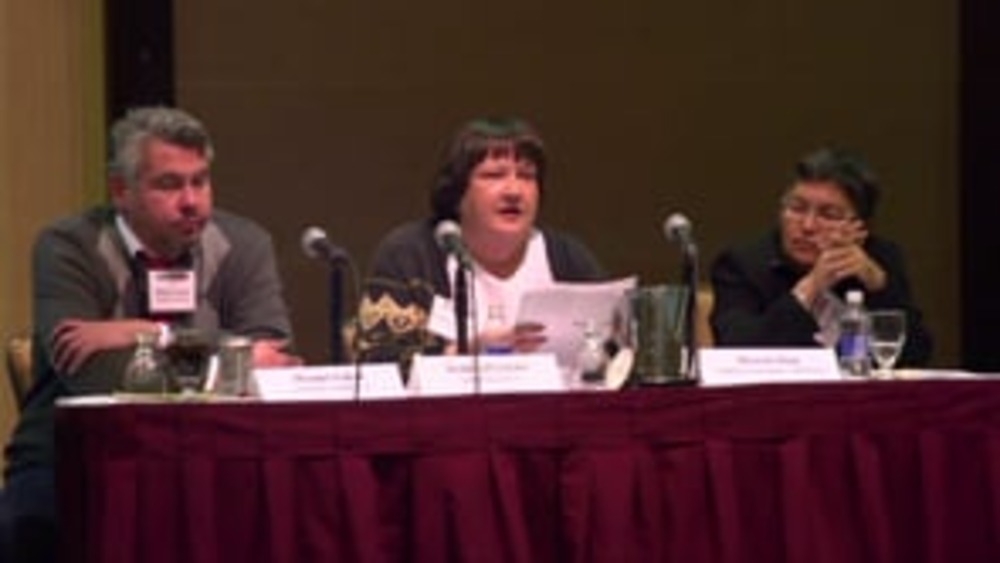
Deborah Locke: Disenrollment: My Personal Story
Deborah Locke, adopted by a Fond du Lac Band of Lake Superior Chippewa couple when she was a small child, shares her heartbreaking story of how she and her adopted siblings were disenrolled by the Band decades later because they were not the biological descendants of Fond du Lac Band members and…
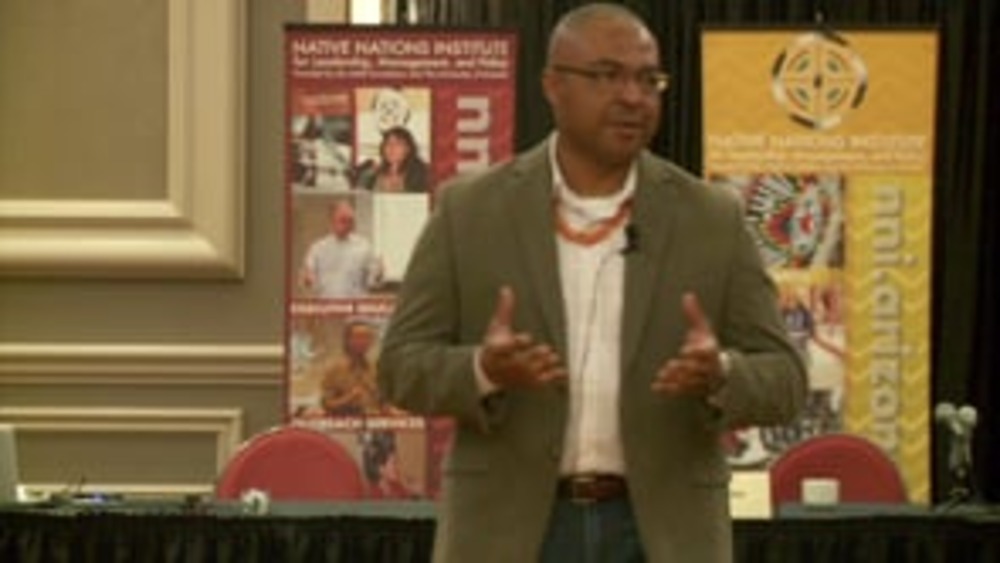
Richard Luarkie: How Do We Choose Our Leaders and Maintain Quality Leadership?: The Pueblo of Laguna
Pueblo of Laguna Governor Richard Luarkie provides a brief overview of how Laguna citizens gradually and systematically ascend up the leadership ranks within the Pueblo through their adherence to and practice of Pueblo core values.
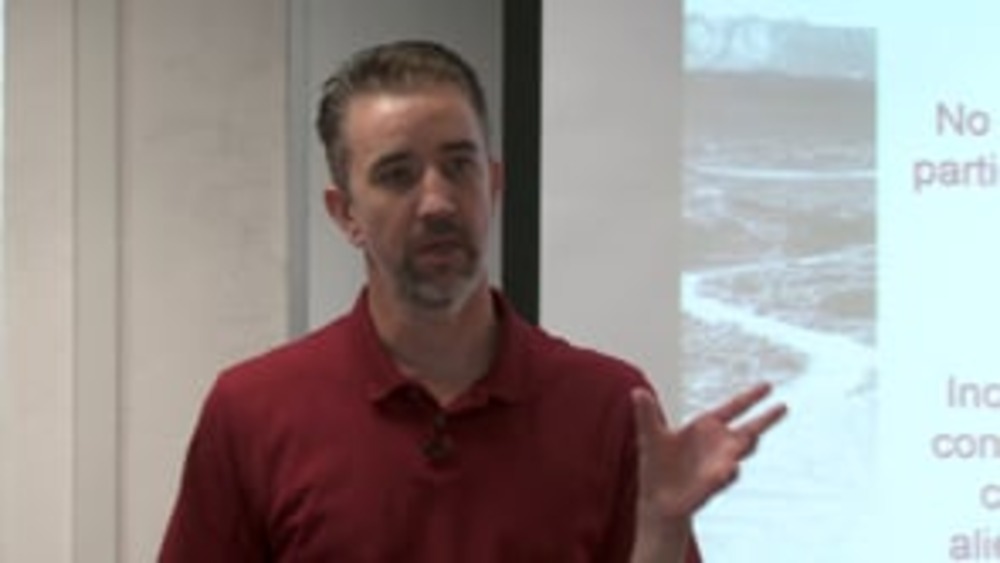
Ian Record: Constitutional Reform: Some Perspectives on Process
Dr. Ian Record, NNI Manager of Educational Resources, provides a broad overview of the inherent difficulties involved with constitutional reform, the different processes that Native nations are developing to engage in constitutional reform, and some of the effective reform strategies that NNI is…
Pagination
- First page
- …
- 3
- 4
- 5
- …
- Last page
